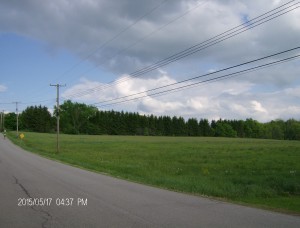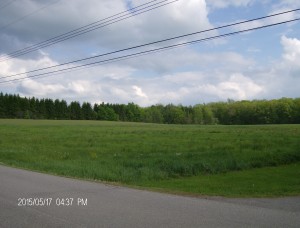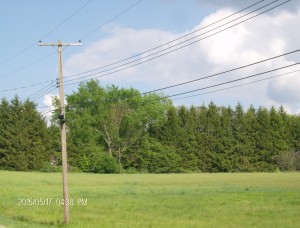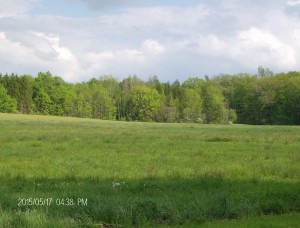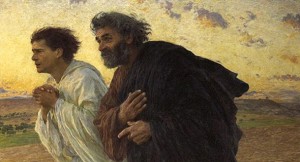Today begins the First of the Nine Novenas for Justice, Peace, & Creation, and this one is dedicated to the Immaculate Heart of Mary, Servant of God Dorothy Day and Peter Maurin. It runs from June 20 — June 28, 2020.
I will not post this every day as the intentions are the same for each day. I’ll just leave it here for nine days; if I need to blog in the interim, I will just post a reminder afterwards. For the background, please read this post on my other blog, Sober Catholic (especially if you need to learn about who Bob Waldrop, the creator of this Novena, was, and why I am introducing it to you. In short, Bob was a guy I discovered online in the early 00s. He was the founder of the St. Oscar Romero Catholic Worker House in Oklahoma City. He ran several websites that are profound and deep in their knowledge of Applied Catholicism. A few years after I joined Facebook I found him on there and I decided to connect with him. From him I learned a lot, and it was the information on his websites that started to direct my thinking of Catholicism as something more than liturgy, sacraments and prayer. I had known that, but he (along with some other sources) gave some concrete form to my thought. You’re really going to have to read that post on Sober Catholic to learn more about him and his work. He died on August 30, 2019.)
The original novena site is here: A Novena of Novenas for Justice, Peace, & Creation.
Don’t worry if you jump in at some point later in the 81 days. To paraphrase Bob “just pick up whenever you happen to join in.”
AFTER THIS SENTENCE, THE WRITING IS ALL THAT OF BOB WALDROP, not me, Paulcoholic.
…
Novena of Novenas for Justice, Peace, & Creation I: to the Immaculate Heart of Mary, Dorothy Day and Peter Maurin (June 20 — June 28, 2020)
“Getting Started:
Begin each novena prayer with a time of quiet prayer. You may find it helpful to pray some repetitions of the Jesus Prayer (Lord Jesus Christ, Son of God, have mercy on me a sinner), a decade of the Rosary, the Chaplet of Dorothy Day and Peter Maurin, or a time of spiritual reading or lectio divina that will prepare your mind and your heart for the prayer to come. This could be a time for a daily examen, where you consider your actions of the day and how they relate to God’s call in your life.”
General Intentions: For the redemption of structures of violence, oppression, exploitation, and despair with beauty, goodness, mercy, and peace. Reparation for sins against life.
The First Work of Justice and Peace: Live simply and justly in solidarity with the poor and marginalized and be a good neighbor. Make no war on them, rather, be one with them in spirit, truth, and love.
Act of Caring for Creation: Pick up trash in a public place.
God, come to my assistance. Lord, make haste to help me. + Let us pray together in peace, in the name of the Father, and of the Son, and of the Holy Spirit.
Holy Mary, Mother of God, help the helpless, strengthen the fearful, comfort the sorrowful, bring justice to the poor, peace to all nations, and solidarity among all peoples. Give us strength to stand against the demonic powers which prowl about the world seeking the ruin of souls.
Open our eyes to see the beauty, joy, redemption, and goodness which comes through obedience to your Son our Lord. Teach us to be a refuge of hope for all who are oppressed by injustice and violence.
Holy Mary, Mother of God, pray for those who serve the poor and who accompany them in their journeys; may we who keep this sacred commemoration experience the joy and love of the grace of your Son; may His most Sacred Heart, together with yours, pierced with sorrow for the evils of the world, be a sure refuge of hope in a time of trouble for all who are oppressed by injustice and violence.
The Magnificat of Mary. My soul proclaims the greatness of the Lord, my spirit rejoices in God my Savior; for He has looked with favor on His lowly servant. From this day all generations shall call me blessed.
The Almighty has done great things for me, and holy is His Name. He has mercy on those who fear Him in every generation.
He has shown the strength of His arm, He has scattered the proud in their conceit. He has cast down the mighty from their thrones, and has lifted up the lowly. He has filled the hungry with good things, and the rich He has sent away empty.
He has come to the help of His servant Israel for He has remembered His promise of mercy, the promise He made to our fathers, to Abraham and his children forever.
Dorothy Day: Dorothy Day, friend and partner of the poor, guiding spirit for the Catholic Worker, home always open to the unwanted, early, often lonely, witness in the cause of peace and conscience, eloquent pattern of gospel simplicity, Dorothy Day, disciple of the Lord, may we continue your gift of self to the needy and your untiring work for justice and peace. Help us to follow your example and dedicate our lives to the creation of structures of beauty and goodness, wisdom and mercy. Amen.
Peter Maurin: Peter Maurin, Holy Fool, teach us to give and not to take, to serve and not to rule, to help and not to crush, to nourish and not to devour. As we create a new society within the shell of the old, remind us that ideals and not deals, creed and not greed, are what makes humanity humane. Amen.
Prayer to St. John Chrysostom on behalf of the U.S. Catholic bishops.
Most Glorious and Venerable St. John Chrysostom,
Grace shining forth from your lips like a beacon
has illumined the universe.
It shows to the world the treasures of poverty;
it reveals to us the heights of humility.
Teaching us by your words, O Father John Chrysostom,
intercede before the Word, Christ our God, to save our souls!
Pray for the bishops of the United States of America,
who do not teach or practice the Catholic faith in its fullness,
that God will deliver them to orthodoxy,
and reform their ways of living,
so that as exemplars of orthopraxis, they will protect all life,
from the moment of conception to the time of natural death.
Teach them true solidarity with the poor, so that they
understand the consequences of their moral abandonment
of entire nations of human beings to a collective fate of cruelty and violence
because they were in the way of the American Empire and
its gluttonous lust for oil, supremacy, and blood.
As you refused to obey the aristocratic commands of your era,
help our bishops turn away from the political demands
that cause them to preach a false gospel of moral relativism regarding war and peace.
Having received divine grace from heaven,
with your mouth you teach all people to worship the Triune God.
Instruct our bishops with the wisdom of the Gospel,
so that they repent of their material cooperation with the objective evil of unjust war,
and call all people, in authentic word and deed, to live in solidarity, peace, and justice.
All-blest and venerable St. John Chrysostom,
we praise you, for you are our teacher, revealing things divine!
Pray for us that we may be made worthy of the promises of Christ.
O God, Who by the preaching and teaching of Saint John Chrysostom
has given us an example of fortitude in the face of persecution and political corruption,
grant that we who reverence his life and ministry may also imitate
his example of fidelity to wisdom, truth, justice, and beauty,
through Jesus Christ Our Lord. Amen.
Our Father . . . Hail Mary… Glory be. . .
Thoughts for the journey. Today many swords pierce the Immaculate Heart of Mary. Injustice, oppression, violence, war, murder, the rape of Creation — all these and more are sins and structures of sin against justice and peace. We know that within our hearts are the seeds of the problems the world faces.
This redemption begins in my heart and your heart. It all starts, as they say, with the man — or the woman — in the mirror.
If we want to see a better relationship of Christ and the world, we must ask first about our own personal relationship with Jesus. Is he the Easter Bunny? Someone who makes us feel good, but who is remote and not really involved? A cultural construct? A topic in a religious education course?
Or is Christ a living reality in my life?
We are in this for the long haul, and it will be a long haul. We will not wake up on the 82nd day after 81 days of nine novenas and discover that we have prayed and worked ourselves into a new world of justice and peace that cares for Creation as God intended for all of us. There is much more work and prayer to come.
If we think we can do this in our own strength, we are wrong.
If we are going forward in the work of justice and peace, the place to start is with an examination of our own lives. How do my sins of omission and commission create and support structures of injustice and oppression? How do I participate in and profit from the social sins and unjust wars of this age? What must be redeemed in my life so that I live in solidarity with those our society has pushed to the edge and further, into the abyss? How can I change my life so that I promote peace, rather than demanding war? Can I end (or minimize) the ecological harm I cause to Creation by my lifestyle?
Have I abandoned Christ for secular saviors? Do I bury myself in the busy-ness of life and ignore God’s call?
As you pray these novenas for the next 81 days, let this be a time when your personal relationship with Christ blooms and flowers. Our prayer for everyone who takes up these novenas is that their hearts will be open to the reality that Christ is alive and he loves each and every one of us. He gave his life to save us and our societies from sin and oppression. He lives today and is at your side every moment of every day to enlighten, strengthen, and free you. OK, I am paraphrasing Pope Francis here, but I think the point is clear: the journey of justice and peace is a journey with Christ.
If we are to change the world, each of us must begin with himself or herself as we ourselves become the change we wish to see in the world. That change is the fruit of the Spirit that grows from our personal relationship with Christ.
Dorothy Day and Peter Maurin:
Dorothy Day was an early advocate of women’s rights who wrote for radical leftist newspapers in the early years of this century. She was a bohemian as they said in those days — but when she looked in her heart of hearts, she found it empty. By the grace and providence of God, she found our Lord and was baptized into the Catholic Church. Thus began a journey which led to the founding of the Catholic Worker movement, together with Peter Maurin and the other first Workers.
It’s clear from their writings that both Dorothy and Peter experienced a tender and intimate relationship with Christ. This relationship was the source of all that they were able to do for the cause of justice and peace. Dorothy was not a stranger to activism; for years she had struggled in the streets as part of the great social battles of the first years of the 20th century — women’s suffrage, the 40 hour week, the right to join a union, justice for workers.
Peter Maurin, a French peasant who came to the United States via Canada, taught that it was a great blessing to assist the rich in coming to the assistance of the poor. Too often, “never the twain shall meet,” and certainly, in this day and age, communication between the poor and the rich is as bad as it has ever been. Communication requires that each person who wants to be heard and understood must see and hear the “Other” as a human person. It’s not easy, and it takes practice.
The program that Peter and Dorothy offered to the world was direct, personal involvement with other human beings. They called us to open houses of hospitality, to engage in clarification of thought so we would understand what needs to be done, and to found agricultural communities as the seeds of new villages. They believed in the importance of the Eucharist, the Rosary, and many traditional devotions — because their work responded to their lively interior relationship with Christ. They were suspicious of the imperial State. They wanted the Catholic Worker movement to be an organism, not an organization, that drew its strength from the Eucharist and the real presence of Christ in the lives of the workers.
As the United States empire entered a time of great triumph, they called for establishing the seeds of a new society within the “collapsing ruins of the old. ” They taught that the poor should be fed by Christians, not by large government bureaucracies. Peter wrote many “Easy Essays” — short little works, almost poetry in their simplicity, each one packed with intense theological concepts about the human person and how we relate to one another in community. He also reminded us of the nobility — and the necessity — of manual labor (something we’d often like to forget in this day of convenience and instant gratification).
Dorothy and Peter worked to create and live structures of beauty and goodness. In the midst of the slums of New York, they provided hospitality to the poor while working for social justice. They learned that the works of mercy and the works of justice and peace are one and the same, different aspects of the same journey, all going the same direction.
Long before it was a theological mantra, the “preferential option for the poor” was a living reality in the life and work of Dorothy Day and Peter Maurin. They were informed critics of current events, prophetically looking for the truth in the signs of their times, and finding Jesus in the poor, rejected, and marginalized.
Their example inspires us today to consider how we can ensure fair distribution, subsidiarity, economic opportunity, justice, and food security for everyone everywhere. As we open our eyes, our minds, and our hearts to the Spirit’s guidance, we can discern our response to the signs of these times. We then can see the structures of sin that bind us in poverty and war, and name the demons which oppress us.
We can buy farms and dedicate them for the purpose of raising food for the hungry. We can organize microenterprise co-operatives in every city to provide opportunity for the poor. We can look at our own individual situations, and adopt lifestyles of simplicity and frugality, rejecting the culture of materialistic conspicuous consumption in favor of a life of living simply, that others may simply live. We can minimize our use of fossil fuels and thus remove one of the major causes of war. We can buy our food directly from farmers, and stop funding the destruction of the family farm community. We can discern the cry of the widow and orphan in our own neighborhoods, and be the hands and feet of God in relieving distress and creating justice. We can open our own hearts to the reality of life in Christ, and embrace him as savior and friend.
Dorothy Day used to quote St. Catherine of Sienna — “All the way to heaven is heaven.” May this be our prayer, in Jesus’ holy name.
Caring for Creation
Our act of reparation during this 9 day novena, and going forward, is to pick up trash in a public place. You won’t have to look far, but I think there are extra blessings for picking up trash in low income neighborhoods. Trash is endemic everywhere. It is a sign of our careless attitude towards the gifts of this Earth that God has so freely given us. Much trash is useful — many items can be recycled or repurposed, but often we think only of our selfishness and do not take the time or the care to do the right thing by Creation and reduce our impact on the planet by recycling. Examine your conscience! Do you sin against God’s Creation by your casual attitude towards waste? Now is the time for actual works of penance, which is why we pick up trash in public places.
Courtesy: Bob Waldrop, St. Oscar Romero Catholic Worker House
…
(I’m, back. Thank you for reading and praying. Just a few thoughts of my own, here, on some of the language Bob used, particularly referring to the US as an “empire,” within a pejorative context. Well, it is painful, but the United States IS an Empire. While an Empire in and of itself is not a bad thing, ours is costly. Excessive tax dollars are spent on maintaining a military presence overseas we can hardly afford; money that could be spent domestically on infrastructure, healthcare, education and other things. In my thinking, there is little reason why we should still be maintaining military bases in Europe. They can potentially defend themselves. NATO served its purpose as the defense of the West against any potential Soviet/Warsaw Pact invasion; after the fall of the Communist alliance NATO should have been mothballed and the European nations taken upon themselves some form of collective defense, if needed. While engaging in military action against terrorists might have seemed a good idea in the early 00s, in reality continued action in the Middle East has only served to create more terrorists. I’m uncertain as to the solution, but the way things are going there and domestically, I think we should cut our losses and our troops recalled. )
Are you a creative Catholic? "The Catholicpunk Manifesto" is my new book exhorting Catholics to apply their faith to change the culture for the better!
Know someone, perhaps yourself, who might like Catholic devotionals for alcoholics? Please take a look at my books!
"The Stations of the Cross for Alcoholics" and "The Recovery Rosary: Reflections for Alcoholics and Addicts" (Thank you!!)
Like this:
Like Loading...
